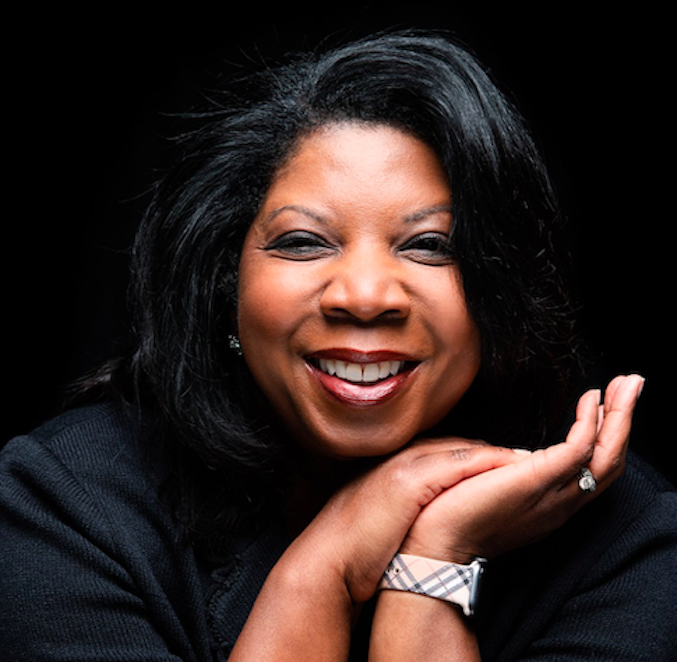In My Reality, an editorial series from D CEO, North Texas executives share their personal experiences of diversity. Today’s post features Cheryl Alston, executive director of Employees’ Retirement Fund of the City of Dallas. She shares experiences on proving herself in the workplace, being an advocate for diverse hiring, and efforts we can all make to effect change.
“I grew up in Connecticut, and at a young age, my mother enrolled me in a Catholic school. She had volunteered at my public school, and she said she saw me sitting outside of class a lot. When she asked my teachers why I wasn’t in class, they said, ‘She already has it, so we just figured running errands would keep her busy.’ So, to keep me engaged in learning, my mother switched me to an all-girls Catholic school, and I remember being one of the two to three people of color.
“When I went to apply to college, I knew I wanted to major in business. I was thinking about Ivy League schools, and I told my counselor I was interested in the University of Pennsylvania. I remember her saying, ‘I don’t know. We’ve never had anyone go to Penn.’ My mother turned around and told me she had $50 to cover the application fee at the time. She said, ‘Let’s go. Let’s try.’ I ended up getting in. That right, there was one of the best learning lessons–you never really know how things are going to work out.
“Once I graduated, I went to work on Wall Street. I experienced something that many others don’t experience; you have to prove yourself. I had one man say, ‘What qualifies you to invest this money?’ The woman who was next to me walked out of that room and said, ‘He said that because you are black and because you’re a woman. You never have to see him ever again.’ But I took it in stride, and I explained my background in private equity to this man. After 20 minutes of discussing investing and private equity deals, he said, ‘OK, you’re qualified.'”
An Advocate for the Forgotten
“I later lived in New York and Los Angeles, where I was on the interview team for undergraduates and MBA candidates. Having the ability to bring people in, ask questions, and be a part of the final decision showed me the importance of being at the table when hiring decisions are made because you can have an influence.
“When I moved to Dallas, I met someone on the board of Dallas Employees’ Retirement Fund. He told me they were looking for an executive director, and he thought I would be perfect for the role. When I went to the interview, I didn’t know I was going to be the first woman and first African American who was ever in the job. I will applaud the board because they did not make it an interim position. They just said, ‘You have the job,’ and they were extremely supportive of me.
“There are a lot of firms out there that have great performance. Then, there’s a subset of firms that have great performance and also have a great culture that respects diversity and gives women opportunities to lead. That’s who I was looking for to manage our money.
“I was always an advocate for the forgotten, and I would encourage the company to find these people. In one conversation I had, someone said, ‘We did that 20 years ago, and it didn’t work.’ My response was, ‘How many times have you hired or terminated a majority white firm in that same timeframe?’ There were probably at least 10 or 12.
“It’s amazing to me that if a diverse candidate doesn’t work once, they’re labeled in with all the other diverse candidates. For some reason, it’s the reverse label for white firms. The company recognized that and changed their behavior.
Implementing Change
“In 2008, the board put in a program called Next Generation Managers. Through the program, if a smaller, diverse firm had a qualified track record and good performance, we would make sure they were given the same opportunities as larger firms. Now, 10 percent of the assets under management are led by a diverse, minority, or female-owned firms. They have done a fantastic job.
“I advocate for diverse, minority firms to manage a percentage of assets, and there are a lot of advocates for that in the Texas area. I remember this one woman who walked up to me at a conference who had been hired two years before. She said she had been hired because investors like me were asking questions about diversity. That made me feel really good. Other investors realized they needed to go out and hire women and people of color to start giving them meaningful roles in the organization.
“There’s been an increase in diversity awareness and an increase in the hiring of junior colleagues of different backgrounds, but I think there’s a lot of room to grow. Oftentimes after people are hired at the mid-levels, they will leave. The reality is, diverse people aren’t being brought in to move up to higher levels. We need to make sure there is a framework for success and begin thinking about whether or not business operations are inclusive.
“There has been some progress made, but what always happens is there’s a setback like a pandemic, which is where we are now. There are a lot of corporate leaders who see what happened to George Floyd, and they can see the inequality. With the pandemic, we see inequalities within healthcare and education. We need to focus on and prioritize these things. My call is, let’s not take steps back but keep moving forward.”
For more on Cheryl Austin, see this cover story from the June/July 202 issue of D CEO.
If you’re a North Texas business or nonprofit leader and would like to participate in D CEO’s My Reality series, please contact [email protected].





